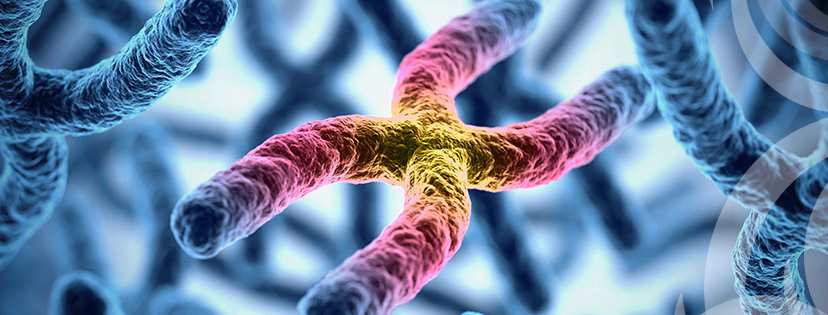Female mouse embryos susceptible to certain stressors, according to NICHD-funded study

The anti-inflammatory properties of testosterone appear to protect male mouse embryos from certain types of DNA damage and inflammation that are fatal to female mouse embryos, according to a recent NIH-supported study. Treating pregnant mice with testosterone or ibuprofen improved the survival of female embryos with DNA damage and resulted in normal gender ratios among the mouse pups.
While the results are early and need to be replicated in people, the study offers clues on the factors involved in pregnancy loss. The work was funded by NIH’s Eunice Kennedy Shriver National Institute of Child Health and Human Development (NICHD) and appears in the journal Nature.
Background
As an embryo develops, many changes occur as cells divide rapidly. Generally, problems with DNA replication or repair during periods of rapid cell division can cause instability in the genome, which results in cellular stress and inflammation. Problems with DNA replication and repair may also contribute to developmental defects and possibly to pregnancy loss, but the reasons for these problems are not well understood.
Results
Researchers led by John Schimenti, Ph.D., at Cornell University studied mice to help determine how problems with DNA replication and repair affect embryonic development. Mice with mutations in genes that regulate an important DNA replication complex, called the minichromosome maintenance complex or MCM, are susceptible to genomic instability and cancer.
While these mice have been studied previously, the research team noticed that mice with certain MCM mutations had drastically more male pups than female pups. The researchers found that the skewed gender ratio occurred early in embryonic development, suggesting that female embryos were somehow miscarried or otherwise unable to survive.
Eventually, the study team determined that the female embryos were susceptible to problems because they lacked the anti-inflammatory effects of testosterone. In fact, when pregnant mice with MCM mutations were given either testosterone injections or ibuprofen, the gender ratios became normal. The researchers also noted that the skewed gender ratios likely were not linked to all types of DNA replication and repair problems, but they may be limited to those that cause certain types of chromosomal damage.
Significance
“When it comes to pregnancy, most people typically don’t think about inflammation and how it can affect fetal development,” said Mahua Mukhopadhyay, Ph.D., of NICHD’s Developmental Biology and Structural Variation Branch, which oversaw funding for the study. “These findings identify genetic damage underlying inflammation and how they contribute to gender-specific pregnancy loss.”
Next Steps
The researchers think that higher levels of micronuclei (fragments of chromosomes ejected from the main nucleus) caused by MCM mutations may trigger a specific DNA-sensing pathway called STING, which is the likely culprit behind the lethal inflammation in female embryos. However, the team needs to test these and other ideas in additional studies, which will form the basis for future research in people.
“Our work shows how DNA damage and inflammation compromise the health of female mouse embryos,” said Cornell’s Dr. Schimenti. “If these effects are similar in people, safe anti-inflammatory treatments may be beneficial in reducing the risk of pregnancy loss caused by inflammation.”
Reference
McNairn AJ, Chuang CH, Bloom JC, Wallace MD, and Schimenti JC. Female-biased embryonic death from inflammation induced by genomic instability. Nature DOI: 10.1038/s41586-019-0936-6 (2019)

 BACK TO TOP
BACK TO TOP